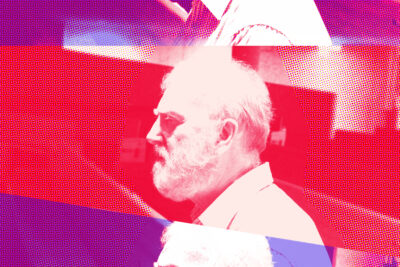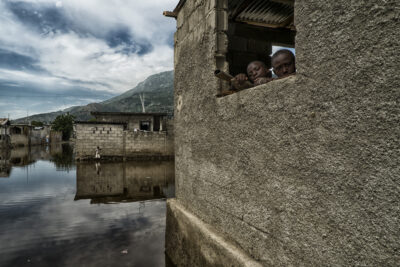Read this article in the limited edition print version: order a copy here.
I hesitated before putting a ‘Black Lives Matter’ sign up in our window at Austin Smith House. I felt it was important it be an authentic statement. It could not be cheap words or a casual mouthing of a popular feeling. As I reflected on who we are and have been as Passionists here in England, I was reassured that for us this statement is deeply real. I also wanted to make sure that it reflected how I really felt, and was not parochial or limited.
Among the cards I sent to friends and family in the last year or two have been some that came from Pax Christi. They show a stained-glass window from an Alabama church that was bombed in a racist attack during the USA civil rights movement. The image is that of a Black Jesus with the words “You do it to me”, a reference to Jesus’ words in the Last Judgment scene in Matthew’s Gospel (Mt 25:31-46). Prominent among those who are crucified today – those Jesus expressed his strongest identification with, those of whom he said, “whatever you do to them, you do to me” – are our Black sisters and brothers in the one family of God.

In recent years, through some of our Passionist Partners, we have received reports of horrendous suffering among the refugees seeking a way to enter the UK from Calais. We have heard how the police there, funded by the UK government, have attacked many of them, hit them and beat them, just for being there. The police have taken away their sleeping bags and destroyed their tents. This was perhaps at its worst when the so-called ‘Jungle’ refugee camp there was destroyed, but many refugees remain despite being targeted in increasingly harsh ways.
Johannes Maertens, the founder of one of our Passionist Partners, St Maria Skobtsova Catholic Worker House in Calais, witnessed this and has done his best to support them. The house then focussed especially on welcoming some of the many Eritrean young men, and some women, who are trying to join family or friends in England, after fleeing the universal open-ended conscription and forced labour that most men in Eritrea are forced to endure. Eritrea has been called ‘the North Korea of Africa’.
That is why the sign in our window says, “Black Lives Matter – UK, USA, Calais and Everywhere”. You could perhaps be forgiven for thinking, if you follow the news, that the only place black people are targeted for violent attack by members of the police is the USA. You could also be forgiven for thinking that the only country that has been building a wall to keep immigrants out is the USA, on its border with Mexico. But then, you probably have not seen the walls and fences the British government has paid the authorities in Calais to build to keep refugees out of Britain.

The sign in our window says something too about how we Passionists and friends have been saying “Black Lives Matter”. Immigration and border policies and attitudes in the UK are certainly racist. They want to keep poor and black people out, and favour immigration from white countries, including Commonwealth countries, which betrays the roots of racism here in the history of the British Empire.
You could be forgiven for thinking that the only country building a wall to keep immigrants out is the USA. But you probably have not seen the walls and fences the British government has paid the authorities in Calais to build to keep refugees out of Britain.
I had some reading to do before a “Climate and Colour” event organised through Christian Climate Action. I found there a statement that “Being anti-racist… means that you actively participate in dismantling racist systems.” This statement reassured and reminded me of the long history of anti-racism among Passionists in Britain. Not just in our efforts to ‘actively participate in dismantling’ the racist system of British immigration policies. Not only in our efforts to put into practice our Province Priority to ‘welcome the stranger’ – the foreigner, the migrant, the refugee – either.
I must admit I needed reminding. Perhaps I had got so used to living and working among people of multi-various ethnicities and countries of origin (some of them even being white British, like myself) that I had forgotten that a concern to rebalance the injustices of racism was one reason I was here in the first place.
Even the name of our house of hospitality here in Birmingham reflects our Passionist history in this respect.
Father Austin Smith CP was a well-known Passionist who first moved with Father Nicholas Postlethwaite CP to live in “Liverpool 8” in 1971, an area with an historic and deprived Black community, generally known as Toxteth. At a local community meeting soon after they arrived, a local man stood up and pointed at Austin and said, “And him – he is the most dangerous man here – he is a white liberal”.
Austin Smith CP modelled a journey into true solidarity and, I believe, an experience of the truth of Jesus’ words.
Ten years later, in 1981, Austin and Nicholas were still there, living on what became the front line, when the so-called “Toxteth Riots” (or ‘disturbances’) happened. Later, Austin was the only white person allowed to join the representatives of the local Black community when Michael Heseltine came to meet them. This was a journey into true solidarity and, I believe, an experience for Austin of the truth of those words of Jesus, “Whatever you do to them, you do to me”.
Austin was a particularly inspirational character. Among those he inspired were John Sherrington and Michael Bold, who followed Austin and Nicholas into what they called the “Passionist Inner City Mission”. John was the first Passionist I got to know. They moved to live first in Islington, then Hackney. John and Michael chose the ‘worker priest’ orientation for their mission. John worked first as a street sweeper, then as a care worker and finally as a home carer for people living with AIDS. During this time, he and Michael became involved with their Trade Unions, and John had a key but secret role in the anti-apartheid movement. I remember him telling me in the mid-1990s, that there was only one Black British born Catholic priest in the whole country. But that through his work, numerous Black men had said to him, “I could be a priest, if I could be a priest like you”. Sadly, though, this could not be guaranteed; so nothing came of it.
With these thoughts in mind, I felt confident I could put the sign, with those words, in our window, and know that they were an authentic reflection of the Passionist presence and witness in this country. For which I thank God.
Related Stories

To Illumine the Mind: the Catholic diaspora in Paris
In Paris, Martin Coffey leads a church overflowing with working class immigrants. The picture of religion in France, he tells us, is not what you think.
Mar 01 2024

Positive Faith present a World Aids Day service, ‘The Reason for Hope’
Reflections, music and scripture as well as opportunities for sharing on this World Aids Day online service.
Dec 01 2023

Dust to Dust: Passionist Life in Haiti
In Port-au-Prince, Haiti, Fr Rick Frechette has been the cornerstone of a Passionist community all giving their lives for the beleaguered nation.
Oct 31 2023




